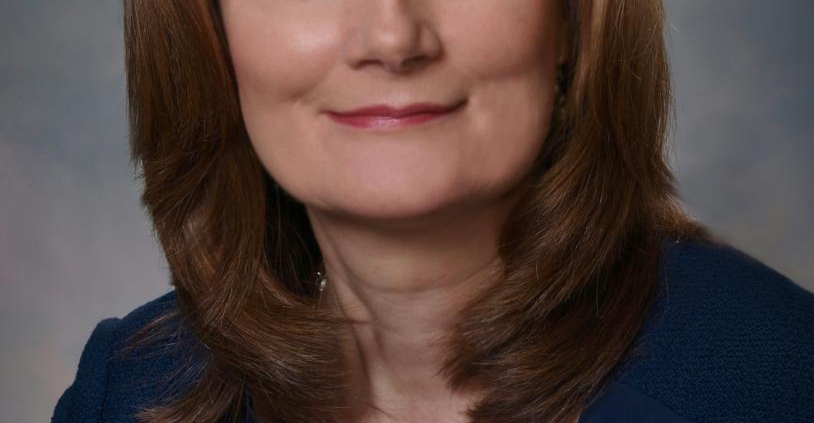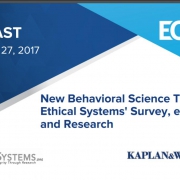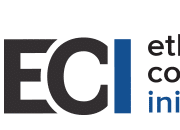Featured Expert Pat Harned, CEO of the Ethics and Compliance Initiative
Featured Business Ethics and Leadership Expert Pat Harned, CEO of the Ethics and Compliance Initiative
For many years, ECI has been a leader in providing research, resources and communities of practice for business ethics leaders. What do you see on the horizon for the organization as it helps companies elevate their E&C programs?
It has been an honor for us to be able to work alongside some of the finest practitioners who are dedicated to establishing and maintaining a high standard of integrity in their organizations. We intend to continue providing these practitioners new insights from research, and new benchmarks on the drivers of ethical cultures. We will also be launching even more ways for professionals to exchange ideas and to advance best practice. ECI is also working with a group of practitioners to develop a maturity model of E&C programs, based on our recent Blue Ribbon Panel report on High Quality Ethics & Compliance Programs. Our expectation is that this new resource will help companies to further assess and improve their programs.
Perhaps the most exciting new development on the horizon for ECI is our new partnership with our friends at Ethical Systems! We are looking forward to our joint effort to connect scholars with practitioners, and to furthering both of our organizations’ research efforts.
Are there recent, promising trends in leadership and ethics that have the potential to have a broad impact on businesses?
Already the #MeToo and #TimesUp movements are disrupting business-as-usual for leaders across all sectors. While the incidents that launched this wave of change are egregious and unacceptable, they have launched a national dialogue about what it means to have a respectful workplace. It is a challenge that is confronting leaders in a whole new way.
There are a number of other emerging issues that I believe are highly likely to impact business, too. They include the speed of change, especially with regard to technology; the increasing risk to organizations’ cybersecurity; shifts in the way employees work, especially as the millennial generation advances into leadership roles; and further coordination among international agencies in enforcing laws against corruption. I also expect that as we continue to integrate smart phones, artificial intelligence, social media, and virtual reality into our daily lives, we will likely see a shift in social norms more broadly. That will surely affect business.
What are some of the strategies that the most innovative business leaders take when advocating for ethics among employees in organizations? Are there specific ones (strategies, or companies) that stand out?
It is exciting to see how business leaders are leveraging new technologies to reinforce the message that ethics is essential to business success. For example, a number of companies send scenario-based “burst training” segments to their employee population. By distributing training in small segments over time, they’ve developed a following of employees who want to tune in for updates to a serial storyline with an ethics message. Another developing innovation is just-in-time training.
Currently many companies have had no choice but to train every employees on a broad number of ethics & compliance topics. As training efforts grow in their sophistication, it won’t be long before employees will receive individualized reminders, notifications, and even short training segments based on their circumstance. For example, just before a senior leader travels to a foreign country, he or she might receive a text message reminder to observe the Foreign Corrupt Practices Act; a message about the company’s policies related to giving and receiving gifts; and access to a short training video with a scenario to reinforce that there are resources available if issues arise.
Another important way that business leaders are advocating for ethics is through the implementation of “ambassadors,” or “integrity leaders.” These are individuals from a variety of business backgrounds who are embedded to reinforce ethical behavior and integrity based decision making throughout the business. These are often individual employees who volunteer to work with the E&C function to help promote the program; the ambassadors also encourage their peers to utilize the resources available when questions or concerns about an issue arise. The beauty of this kind of approach is that the ethics message is spread via a peer network, and the resources of the program are often tailored to the unique needs of a particular segment of the workforce.
How do you think the academic research community can best add value to organizations trying to improve their ethics?
There are many areas where research conducted by scholars can advance ethical behavior and culture. As much as we know about the importance of tone-at-the-top, as an industry we still struggle for specific ways to help leaders in undertaking that effort. In other words, what does tone-at-the top really look like? This is an area for further exploration. There is also a need for academic input into the blossoming area of predictive analytics, and even the ethics of using big data to anticipate increased risk of noncompliance. I also think that higher education can make an invaluable contribution to organizations by preparing the next generation of employees to recognize and respond to ethics issues that they will surely face as they advance their careers.
At ECI, we are excited about our new partnership with Ethical Systems because it will help us to further connect the research community with organizational leaders. Already our organization has benefited by the involvement of a number of scholars in our Fellows Program over the years. We know there is so much more that we can do together, especially if we can integrate academic researchers into ECI’s research efforts; showcase their personal studies to our practitioner community; and work together to undertake new studies to advance understanding. The possibilities are enormous!
What are the areas for improvement for companies when promoting ethics and integrity? What do you wish you would see more of?
It is not easy to be an organization that is committed to a high standard of integrity. Working with diverse populations of employees, often in many regions of the world; remaining vigilant in preventing and detecting misconduct; encouraging reporting; and getting the buy-in of leadership to champion the cause of ethics are some of the biggest areas where I think that there is always room for improvement. I am sure I am not alone in wishing that I would see more CEOs taking a leading role in building and sustaining a culture of integrity in their organizations.
In this shifting regulatory climate, how can multi-nationals best adapt to government priorities?
The best answer to this question I have ever heard came from a practitioner who had a great deal of experience in the area of ethics & compliance. He said, “If our organization has truly developed a high quality ethics & compliance program, we don’t need to worry about shifting sands with regard to government priorities.” This is not to say that companies should not monitor the regulatory and enforcement environment in the regions where they operate. But it is true that organizations are far less likely to have entanglements with government authorities if they integrate ethics into their business strategy; mitigate their risks; establish ethical cultures; encourage reporting; and insist on accountability.
Are there lessons from companies that would prove useful?
Certainly. That is why ECI provides multiple avenues for business leaders to network, exchange ideas, and delve more deeply into the issues that are confronting their organizations. We provide benchmarking groups dedicated to specific topics; Best Practice Forums devoted to program practices; and other events to help stimulate idea sharing and root cause analysis. Some of the greatest lessons come from organizations that have been through the worst case scenarios of scandal. The insights they gain from their experience and the steps they have taken to change are invaluable.
If you could give one piece of ethics advice to companies, what would it be?
You can make a big difference in your organization if you focus on two things: integrating ethics & compliance into business strategy; and creating an environment where employees are encouraged, protected, and rewarded for reporting suspected wrongdoing.
If you could give one piece of ethics advice to individuals, what would it be?
Follow your instincts. When the day comes that you encounter wrongdoing at work, you will probably know in your heart that something is not right. Be strong and step forward to make management aware of a potential problem.
Previous Monthly Ethics Interviews:
 |
 |





